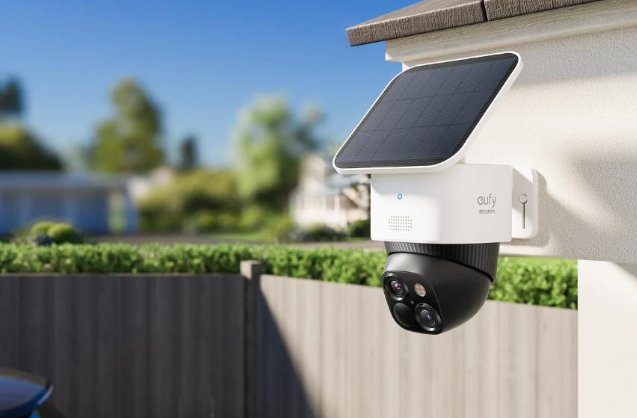Business
CCTV Camera Selection: Top Criteria for Buyers

Choosing the right CCTV camera can be overwhelming. With numerous options available, making an informed decision is crucial. Your choice should depend on specific criteria to ensure the system meets your needs. From image quality to smart features, each aspect plays a vital role in providing optimal security. In this guide, we will discuss the essential factors to consider when selecting a CCTV camera. By understanding these criteria, buyers can confidently navigate the market and choose a camera that offers reliability, security, and peace of mind.
Define Your Surveillance Needs
Understanding your specific surveillance needs is the first step in selecting a CCTV camera. Consider where and how you plan to use the camera to maximize its effectiveness and security performance.
Indoor vs Outdoor Monitoring
Decide whether your surveillance will be indoors or outdoors, as each setting requires different camera features and build quality. Outdoor cameras must be durable enough to handle harsh weather conditions such as rain, wind, dust, and extreme temperatures. Look for models that are water-resistant, tamper-proof, and equipped with night vision or motion detection to ensure round-the-clock protection. In contrast, indoor cameras should prioritize a discreet and modern design that complements your interior décor while delivering high-resolution video and clear audio for detailed monitoring. Choosing the right type ensures optimal performance and long-term reliability.
Area Size and Coverage Requirements
Identify the area size you intend to monitor. Larger areas require cameras with wider fields of view, possibly requiring pan and tilt features for comprehensive coverage. For smaller spaces or focused monitoring, a fixed camera with high resolution might suffice. Calculate the number of cameras necessary for adequate coverage without leaving blind spots. Consider cameras with zoom capabilities or interchangeable lenses for flexibility. Defining coverage requirements ensures an efficient and cost-effective surveillance setup tailored specifically to your location and security goals.
Key Technical Features to Evaluate
Selecting the right cctv camera involves evaluating technical features to ensure quality and functionality.
Image Quality and Resolution
Image quality and resolution play a vital role in ensuring security footage is sharp, accurate, and usable for identification purposes. High-definition (HD) and ultra-high-definition (UHD or 4K) cameras deliver superior clarity and detail, making it easier to recognize faces, license plates, and small objects even from a distance. Most modern security cameras now offer resolutions from 720p to 4K, with higher resolutions ideal for monitoring larger or outdoor areas. However, they also demand more storage space and stronger network bandwidth. It’s important to choose a camera that balances resolution, performance, and storage capacity while maintaining clear, crisp visuals both day and night for reliable surveillance.
Night Vision, Lighting & Environmental Durability
Night vision capabilities are essential for maintaining effective 24/7 surveillance, allowing security cameras to record clear, detailed footage even in complete darkness or poorly lit areas. This feature often relies on infrared LEDs, full-color night vision, or advanced low-light image sensors that automatically adjust to lighting changes. When choosing a camera, assess how well it manages diverse lighting environments—especially its ability to prevent glare, halos, or dark corners that obscure visibility. For outdoor use, ensure the camera offers robust protection against rain, dust, extreme temperatures, and vandalism, guaranteeing reliable performance year-round.
Connection Type, Storage & Smart Features
Determine whether a wired or wireless connection best suits your home security setup. Wired cameras generally deliver a more stable and interference-free connection, making them ideal for permanent installations or areas with strong network demands. In contrast, wireless cameras offer greater flexibility, allowing easy placement in hard-to-reach spots without extensive cabling. When choosing storage, you can opt for local devices like DVRs or NVRs for full data control, or cloud-based solutions for remote access and automatic backups. Additionally, explore smart features such as motion detection, instant alerts, AI-based object recognition, and smart home integration.
Brand, Compatibility, and Future-Proofing
Selecting a reputable brand, such as eufy, often guarantees superior product quality, reliable customer support, and long-term satisfaction. When choosing a camera, carefully assess its compatibility with your existing or planning smart home systems to ensure seamless integration within your security network. Prioritize models that offer regular firmware updates and support expandable technologies to keep your system current as innovations emerge. Additionally, review customer feedback and product ratings to gauge real-world performance. Finally, opt for systems backed by comprehensive warranties, providing protection and sustained value against future technological advancements.
Conclusion
Choosing the right CCTV camera involves evaluating various criteria essential to meeting your security needs effectively. By understanding your surveillance requirements and considering key technical features like image quality, night vision, and smart capabilities, you make informed decisions that provide peace of mind. Align your choice with a reputable brand and ensure compatibility with existing security systems to achieve maximum utility. Armed with this knowledge, buyers can confidently select a CCTV camera that offers security, reliability, and advanced features tailored to their specific needs.
-

 Celebrity1 year ago
Celebrity1 year agoWho Is Jennifer Rauchet?: All You Need To Know About Pete Hegseth’s Wife
-

 Celebrity1 year ago
Celebrity1 year agoWho Is Mindy Jennings?: All You Need To Know About Ken Jennings Wife
-

 Celebrity1 year ago
Celebrity1 year agoWho Is Enrica Cenzatti?: The Untold Story of Andrea Bocelli’s Ex-Wife
-

 Celebrity1 year ago
Celebrity1 year agoWho Is Klarissa Munz: The Untold Story of Freddie Highmore’s Wife
















